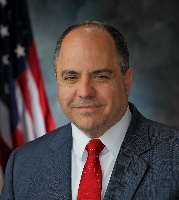Silver Springs White Collar Crime Lawyer, New York
Sponsored Law Firm
-
 x
x

Click For More Info:
-
The Law Offices of Richard L. Cooper, P.A.
848 Brickell Avenue Suite 800 Miami, FL 33131» view mapDWI/DUI, Drug Trafficking, Felony Nationally Ranked Top 40 Under 40
With Richard L. Cooper you can expect a trusted confidant who will work diligently to fully understand your case and determine a road map to help you regain control of your life.
800-756-2781
Not enough matches for Silver Springs White Collar Crime lawyer.
Below are all Silver Springs Criminal lawyers.
Raymond Paul Sciarrino
✓ VERIFIEDCriminal, Real Estate, Personal Injury, Traffic, Estate
Licensed: 22 Years
Sciarrino & Sciarrino, P.C. is a criminal law firm serving Rochester and the surrounding areas of Livingston County and Wyoming County. For more than ... (more)
Raymond Louis Sciarrino
Accident & Injury, Personal Injury, Criminal, Estate, Real Estate
Status: In Good Standing
Michael William Stivers
Landlord-Tenant, Divorce, Criminal, Car Accident, DUI-DWI
Status: In Good Standing
Marcea Clark Tetamore
Real Estate, Divorce & Family Law, Criminal, Bankruptcy & Debt
Status: In Good Standing Licensed: 33 Years

 Richard L. Cooper Miami, FL
Richard L. Cooper Miami, FL AboutMiami Attorney at Law
AboutMiami Attorney at Law ServicesCriminal Defense
ServicesCriminal Defense

